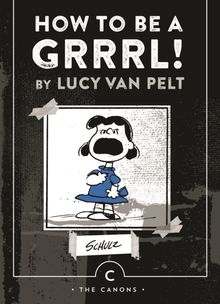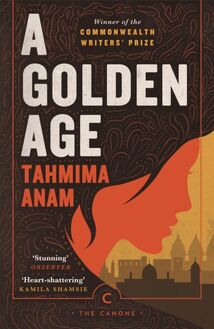On Forgiveness , livre ebook
41
pages
English
Ebooks
2002
Vous pourrez modifier la taille du texte de cet ouvrage
Obtenez un accès à la bibliothèque pour le consulter en ligne En savoir plus
Découvre YouScribe en t'inscrivant gratuitement
Découvre YouScribe en t'inscrivant gratuitement
41
pages
English
Ebooks
2002
Vous pourrez modifier la taille du texte de cet ouvrage
Obtenez un accès à la bibliothèque pour le consulter en ligne En savoir plus
Publié par
Date de parution
09 février 2002
Nombre de lectures
0
EAN13
9781847677143
Langue
English
Publié par
Date de parution
09 février 2002
Nombre de lectures
0
EAN13
9781847677143
Langue
English
For Desmond Tutu
There is only forgiveness, if there is any, where there is the unforgivable.
Jacques Derrida
Contents
1 Religion without Religion
2 Reclaiming the Future
3 Managing the Chaos
4 Redeeming the Chaos
Notes
Bibliography
Acknowledgments
CHAPTER ONE
Religion without Religion
You don’t have to be religious to believe in or practise forgiveness. You might even argue that religion can make people invincibly unforgiving, but the fact remains that religion gives us many of the best stories and metaphors for forgiveness. The difficulty we face in using these texts is in defining the authority of the language they come in. It is proclaiming the obvious to say that words mean different things to different people. Because we tend to operate on the assumption that our words have some sort of equivalence to the things they describe, we are always surprised when they puzzle or confuse other people rather than enlighten them. This is not only over the obvious difficulty of using another language incompetently: even the language we know best contains traps for the unwary. One of the enduringly comic situations afforded by life is the studied incomprehension of the previous generation when it stumbles on the new meaning that words have been given by the next generation. We might, for example, hear an elderly gentleman mourning the appropriation of the word gay by the homosexual community. I remember watching a perplexed presenter on a television panel game trying to get her head round the black slang of one of her contestants who was insisting that wicked was a word of high praise. Part of our genius as humans is the way we go on adapting language to fit our changing experience of life and the mysterious universe in which it is set.
However, this task of adaptation is problematic when we try to apply it to the sacred texts of religion. That is why in this introductory chapter I want to explain my approach to the big words that religion deals in and the ideas that lie behind them, such as forgiveness, the principal topic of this book. First of all, I want to say that I shall try very hard to be descriptive rather than prescriptive in what I write. This is not what people usually expect from religious writing. Religion is associated in their minds with the imperative mood, with rules and commandments that allegedly come directly from God and must therefore be obeyed without question. I do not want to retrace ground I have already covered in a previous book, Godless Morality , except to repeat the point that to identify God with social arrangements that come from a previous stage of human development makes any kind of cultural evolution impossible. Traditional religions claim that God has provided a highly detailed and permanent pattern for human relationships, and the fact that it happens to be based on the cultural norms of ancient patriarchal societies is just too bad; ours is not to reason why. Universal obedience to this claim would have put a permanent brake on cultural development, had religion been the only player in the game. Fortunately, the evolution of the secular mind has increasingly limited the power of religion to inhibit the pace of social change, so that the current of human liberation has been able to flow largely unimpeded. The movement of ideas in eighteenth-century Europe that became known as the Enlightenment began to undermine the role of religious authority as the main determinant of human values. The religions themselves were increasingly discredited by their conflicts and rivalries, so the secular mind gradually won the battle for tolerance against its divided enemy. It is beyond dispute that the victory of secular humanism has created a major crisis for Christianity. The Church was in a position of cultural dominance in the West for centuries. It saw itself not as one religion among many, but as the final and complete way appointed by God for humans to achieve salvation. It is difficult for a religion accustomed to think of itself as the only true way of life to adapt to a pluralist culture where its claims are tolerated as only one choice among many. It is also well known that when institutions that were founded to propagate great ideas are threatened by the revolutions of history they tend to protect themselves by retreating behind their own walls, at the expense of the values they were designed to promote. Their own survival then becomes their main purpose, rather than the promotion of their best ideals.
The counterpoint to the current panic in institutional religion is the arrogance of the purely secular mind that refuses to acknowledge that religion has been the main carrier of certain fundamental values. I shall argue in this book that religion has been the container of some important human discoveries that are still vital to us, even though the institutions that carried them through time may be disintegrating. That is why I want to be descriptive rather than prescriptive in what I write. I want to argue that an exploration of forgiveness, a description of how it works and where it comes from, will enrich our humanity, whether or not we continue to hold specifically religious beliefs.
When I take part in radio discussions on religion, I am frequently challenged by people to give a straight yes or no in answer to their questions about the meaning of particular passages in the Bible. I always resist these attempts to turn theology into algebra, by pointing out that there are honestly different ways of using and understanding religious narratives. What is important is to use them to improve rather than damage the health of the human community. We are more likely to agree on that objective than on establishing their precise theological meaning. This way of using religion tries to show that some of its best values are now accepted by the community at large, so the important thing is to concentrate on the continuing development of these values and pay less attention to the agencies that have carried them through history. Like the rocket that has to fall away when it has established its satellite in space, religion has thrust its best values into the human orbit where we hope they will continue to do their work long after the vehicle that got them there has disappeared. What happens to the launch engine is not as important as the future of the ideals it has carried, though there will be some sadness as we see it disintegrating now that its purpose has been achieved. This approach continues to accord a high value to the impulse behind religion , though it no longer takes any of the particular religions at their own self-estimation. It is a position that Jacques Derrida calls ‘religion without religion’. According to this way of looking at things, it is the fundamental ideals we find in religions that matter, not the religions themselves. The most important of these ideals, the love of God, has been the most difficult to define. This is how John Caputo puts it, as he echoes the famous question of Augustine of Hippo from his Confessions:
What do I love when I love my God? Not the burnt offerings and solemn assemblies, but justice. Is justice then another name for God? Or is God another name for justice? If I serve the neighbour in the name of God, or if I serve the neighbour in the name of justice, what difference does it make? If the name of God is a how , not a what , then the name of God is effective even when it is not used. 1
Caputo’s emphasis on justice is interesting, because justice is one of the fundamental principles of the three religions that stem from Abraham: Judaism, Christianity and Islam. The call of justice is one aspect of faith that can continue to challenge us, even if we have abandoned the religious claim on which it is based. Indeed, one way of getting the present war on terrorism into some kind of perspective is to acknowledge the strong sense among Moslems that the West has been unjust in its handling of some of the conflicts in the Arab world. If justice is one of the fundamental principles of true religion, then forgiveness, as I shall argue, is its essential counterpart, its necessary antithesis. If our passion for justice can sometimes trap us in war and bitterness, then it is forgiveness that can sometimes help to rescue us. And, as with justice, we can value forgiveness for its own sake, even if we are no longer comfortable with the theological packaging it comes in. Indeed, we might argue that practising justice and forgiveness for their own sake, and not out of religious duty, is their highest expression and the truest form of religion. This is why Caputo goes on to say that the idea of religion without religion
amounts to the recommendation that we return to the medieval sense of vera religio , where ‘religion’ meant a virtue, not a body with institutional headquarters in Nashville or the Vatican, so ‘true religion’ meant the ‘virtue’ of being genuinely or truly religious, of genuinely or truly loving God, not The One True Religion, Ours-versus-yours. God is more important than religion, as the ocean is more important than the raft, the latter bearing all the marks of being constituted by human beings. Religion, which is a human practice, is always deconstructible in the light of the love of God, which is not deconstructible. 2
This way of applying some of the fundamental ideals of religion to the needs of the human community could help to lead us out of old conflicts into a new future. The fascinating thing about this radical hope in the possibilities of the future is the way some of its central protagonists, such as Hannah Arendt, Jacques Derrida and John Caputo, have developed a theory of human development that is continuous with the best of the religious vision. Though they do not accept the absolutist claims that religions have made for themselves, they affirm and admire the essence of the religious impu














